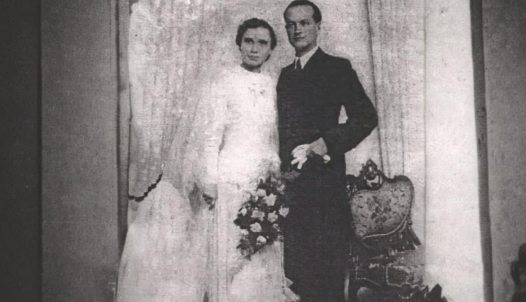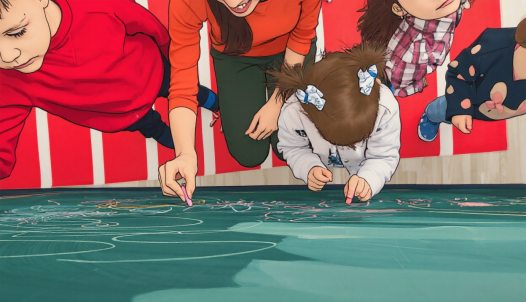There is no prostitution without coercion
Research indicates that people are more vulnerable to prostitution in the current crisis caused by the virus as they are in times of natural disaster. Many feel a sense of resentment towards prostitutes because they live immorally and there is a general belief that they themselves are to blame for their situation. If, however, one digs a little deeper into this issue, it becomes apparent that the problem is far more complex. Anyone who has once entered the sex industry, even if they are not physically abused, can never extricate themselves without suffering some form of mental trauma.

If we had switched places...
It is chilly down in the underpass at Nyugati Square, the air is rank with the smell of sour cigarette smoke. A young woman (let’s call her Lulu) is standing at the bottom of the steps taking deep drags from a cigarette: once again she is underground in order to sell her body. When I speak to her, she replies politely, saying she has no problem with me questioning her about her work, in return for which she only asks for a pack of cigarettes.
She tells me that she came to Budapest from a village in Somogy county, her father is a violent alcoholic and ever since she managed to ‘escape’ from home she hasn’t visited her parents.
We chat for a long time but she doesn’t finish her last sentence as she is getting ready. I follow her gaze and look at the man I suspect is her next ‘client’. It is quite likely that, even if involuntarily, a look of disgust passes across my face. “It’s just sex,” she says shrugging her shoulders, and waves to me in farewell.
I conducted this fieldwork years ago but even now I spend a lot of time thinking about what could have happened to me and to Lulu if we had been accidentally switched at birth. Then Lulu would have attended piano classes, she would have been enrolled into a church school, she would have been asked questions in lessons, she would have had the grazes picked up in a bicycle accident kissed away and she would have raised a glass with my parents on learning of her successful entrance exam to university. Meanwhile, I would have been curled up on the packed earth floor somewhere in a dead-end village because I hadn’t been able to hide from my father in time. Lulu is a textbook case, the embodiment of the street girl stereotype, but there are others.
I met the Brazilian Ines in Lisbon. Her mother was a prostitute in a poor neighbourhood and she also sold her body several times when still young in order to keep herself and the child she gave birth to when a teenager. Did she actually have a choice? She feels that there was no choice. She told me she was driven by a desire to break free, she was confident that if she ‘worked’ enough she could, one day, break out of this cycle of misery and eventually give up this way of life by getting married. I also spoke to an escort who said she came from a good family but she didn’t want to give up her lifestyle and this was the only way of enjoying luxury.
People move into the sex industry from very many different walks of life but coercive factors are the common denominator in all of their fates, as a consequence of which they look on their own bodies as a commodity to be traded.
The institution of prostitution is built on an asymmetric relationship because a prostitute does not have sex because he/she desires it but because he/she needs the money. “The way to be able to bear unwelcome intimacy and visceral reactions of disgust is if someone learns to separate their own emotions from their behaviour. So-called dissociation means that a person does not really experience what is happening to them, but instead they are present in the situation like some kind of observer. This is how children survive sexual abuse, their psyches protect themselves from completely collapsing mentally. Even though in fact this mechanism helps in surviving, anyone who has to resort to this means must pay a high price. It may take many years of extensive therapy for somebody to work through these experiences. It can result in mood swings, addiction, post-traumatic stress disorder, anxiety, insomnia. It is enough to mention just one set of data as an example: in several studies, roughly 70% of prostitutes displayed signs of depression whereas compared to the general population this proportion is just 5-10%! Anybody able to finally quit prostitution later on has a major task of incorporating their past into their current self-image, or restoring their self-limits, that is, being able to judge realistically and represent what is acceptable behaviour from another person and what is the point when they have to say no,” explains Orsolya Kovács, head of BeBalanced Psychology Point.
Never a genuine choice
The psychologist believes that there are still enormous misconceptions in society as regards prostitution, one of the most common being that prostitutes enjoy sex. Psychologists, social workers and healthcare specialists engaged with sex workers paint a completely different picture: “It is a mistake to believe that being a prostitute is the result of free choice; the truth is, external and internal coercive forces lead the individual in this direction, even if they are unable to formulate this for themselves.
“For example, a casual heterosexual male prostitute told me that he went with men and with women sometimes for food, sometimes for drugs.
“He grew up in state care amidst a constant lack of love and serious abuse. Can one really call that a genuine choice? I don’t think so at all! A whole raft of unprocessed trauma led to this point, which, unfortunately, will be compounded by further trauma,” notes Orsolya Kovács.
In Hungary, those who live in children’s homes are particularly endangered since they have undergone many traumas and display more psychological deficiencies. Pimps are fully aware of this as well, which is why they go to great lengths to get in contact with them. They entice young people with kind words and hold out hope for a better life, then suddenly these kids find themselves in a coercive situation from which there is no escape. According to the psychologist who regularly works with children who have spent time in state care, this is when they fall into a trap physically and emotionally.
They have no experience of what it is like to be really important to someone, they don’t know what it is like when someone takes care of them and they are not clear about body boundaries.
They don’t see themselves as being of value so their sense of reality is seriously damaged: many don’t even realize they are being exploited, they don’t know what it is like to live without authority or danger.
The impact of the pandemic
Whereas taxpayers in Western Europe complain that the pandemic has slashed demand and they petition for state aid, flagging interest is only temporary while mass unemployment, economic bleakness and the death of relatives will force more people into prostitution. Catherine Wornshop, professor at Maryland University, examined the impacts of the Ebola epidemic on people trafficking and she came to the conclusion that more than 16,000 children had lost one (or both) parents to the virus in Guinea, Liberia and Sierra Leone, the sexual exploitation of children had skyrocketed, while from research conducted by Save The Children it transpires that in Sierra Leone alone, adolescent pregnancies increased by 65%.
According to experts, in Hungary too the unfolding crisis, unemployment and the isolation of families increase the vulnerability of children to those criminals who want to force them into prostitution, pornography or other forms of child sexual exploitation.
Recently, Szülői Hang (Parental Voice) drew attention on its Facebook page to the fact that even now there are signs from Brazil that increasing numbers of children from the poorer regions are being forced into prostitution, often by their own parents. Furthermore, the latest EUROPOL report concludes that since the outbreak of the pandemic the number of online recordings of sexual abuse committed on children has increased by a multiple.
The attitude of governments to ‘the oldest profession’ varies according to country, with some supporting it, some tolerating it and some banning it, but in every single country this industry is booming. Draconian measures lead to the establishment and running of secret brothels, an over-tolerant approach can mean that even more women are channelled into this industry, so for the time being it would appear that the world still does not know how to tackle the institution of prostitution. While there remains demand, there will always be those who ensure a supply, if not voluntarily then through force.
The single thing we can do is try to create a world around us in which as few people as possible look on their bodies as a commodity.
Experts in the field reckon that in order to be able to make major inroads into kerbing prostitution, it is necessary to implement structural transformations and a turnaround in social attitudes. “Instead of judging, it would be worth placing the emphasis on offering the right kind of help and education. We could teach our own children from the earliest age about protecting their own physical and mental boundaries. We must spend a lot of time talking to them about what it is when in a relationship, both sides mutually look after the other’s needs. If you see abused children in the neighbourhood, then report this fact, don’t stick your head in the sand! If we know someone who falls into a category that can be classified as vulnerable, talk to them about how they can take care of themselves, the different ways that young people's good faith and lack of love can be taken advantage of,” says Orsolya Kovács.
The psychologist is of the belief that it would be worth intensively debating at social level how to maintain control of prostitution, how to ensure the adequate provision of healthcare protection for prostitutes and how to rescue them from their situation, furthermore, utilizing the lessons of several successful foreign programmes, it is also necessary to implement social policy decisions in order to discourage prostitution.







